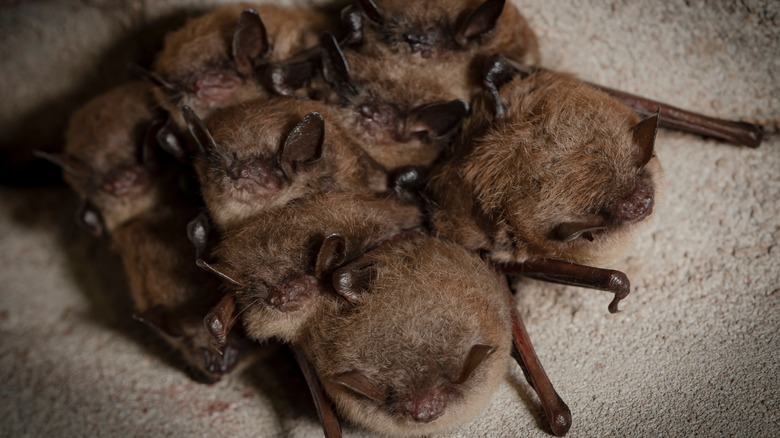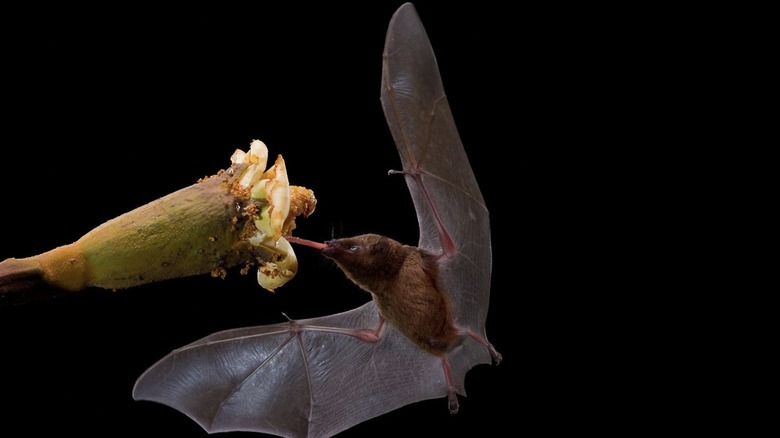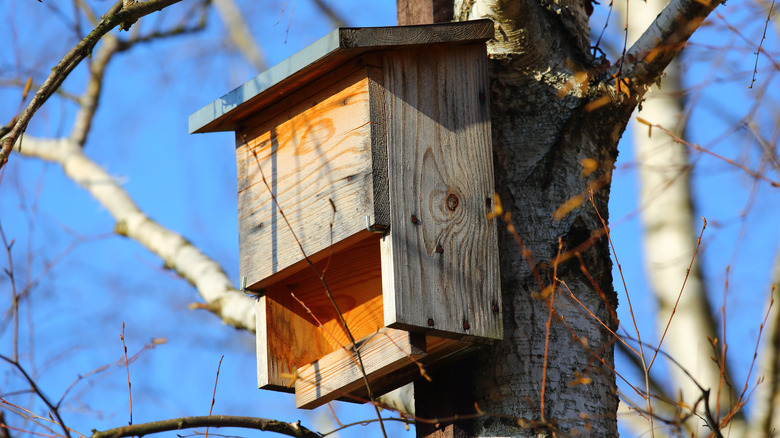Should You Be Worried About Bats Damaging Your Garden?
No scary movie is complete without bats — from haunted houses to vampire dens, bats evoke fear in the average viewer with a mere screech or a flap of their wings. Hollywood hasn't been kind to these flying mammals, suggesting that an encounter with a bat might result in sucked blood, a tangle of wings in your hair, or the origin of a new infectious disease. But how scary are bats in reality? When you spot them circling your yard or garden at night, should you fear that they'll ransack your hard work?
In truth, bats aren't very scary at all, and they pose no threat to your garden. They actually provide crucial benefits to gardens, and anyone seeking to bring more pollinators into their yard would do well to consider inviting bats in. Sure, bats can damage buildings with prolonged infestation, but savvy gardeners can do a lot to welcome bats into their natural outdoor space, drawing them away from homes and sheds and into a thriving outdoor ecosystem.
Bats are pollinators and insect predators
Just what makes bats so helpful in the garden? For one, they are one of the few nocturnal pollinators in North America, alongside moths. Night-blooming flowers require bats and moths to spread their pollen — flowers that attract nocturnal moths will also attract the insectivorous bats that prey on them. And some bats feed directly on flower nectar, spreading pollen as they go.
But even moths in too great a number can threaten your garden, as they are among the many insects that snack on plant life. Enter bats to save the day: bats not only keep moth populations in check, but also the populations of other harmful pests like mosquitos, midges, beetles, and weevils. Bats can provide natural and free pest control, eating up to 6,000–8,000 insects a night.
One 2015 study on the effects of bats on corn earworm (a corn-loving insect) populations found 59% more corn earworms per ear where bats were prevented from feeding, and they concluded that bats not only have a significant effect on pest populations, but decrease pest-related fungus and mycotoxins in corn crops, too. Even guano — the technical term for bat poop — makes bats indispensable to gardens, acting as a natural fertilizer.
How can you attract bats to your garden?
If you're looking to attract more bats to your yard, there are a few things you can do to make your space more hospitable to these useful and endangered flying friends. You can plant fragrant native plants and trees to attract moths, and in turn bats, like phlox, beardtongue, and evening primrose. If possible, provide a source of water for bats to drink from, such as a trough or small pond. Avoid using pesticides and chemically treated wood in the garden, as they can poison bats. If you're an outdoor cat owner, be sure your cat is inside an hour-and-a-half before sunset and at nighttime, when bats are most active (cats will gladly prey on bats if given the chance).
Providing spaces for bats to roost will likewise encourage them to visit your yard. You can start by building a bat house and mounting it away from noise and artificial light, both of which can deter bats. If you can safely leave any dead trees in your yard standing, they make for perfect shelter for bats too.


